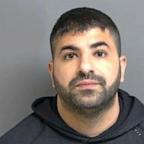The Conversation: College Bans Social Media
Harrisburg University's Eric Darr talks to ABC News' Aaron Katersky.
Sept. 17, 2010— -- Can you imagine life without Facebook? For many the social networking site is a hub for their daily activities -- whether at work, school or walking down the sidewalk. Eric Darr is the provost of Harrisburg University of Science and Technology in Pennsylvania. He decided to examine the impact of social networking sites like Facebook and Twitter, by blocking access to these and similar sites on the campus' computer network.
Darr describes it as "an interesting project… the idea was to focus attention on what we view as an important set of technologies -- social media."
Darr promises that blocking access to social networks was not simply about eliminating distractions for students and faculty. "It was the observation that projects got done, contacts got made and friendships maintained, collaborations on grants happened --all of that happened through social media. And what if it weren't there? What would people do?"
Reactions on campus have been mixed. Some students have embraced the moratorium and have really cut themselves off from social networking while for others the separation from these sites has incensed them to near riotous revolt. Most have found ways around the block. Students access Facebook on smartphones or walk a few blocks to a local hotel to gain access there. Darr realizes that most of his students and faculty haven't been completely cut off.
"I just wanted an honest reaction," says Darr. In the coming weeks, through surveys and discussion panels, Darr hopes to examine the effects further. "Why were you compelled to walk three blocks to the hotel and get on the network there when on any other given day you weren't going to walk upstairs, let alone three blocks down city streets to go to check your Facebook?"
At the very least, the moratorium has attracted plenty of attention for Harrisburg University. Darr feels that it has really sparked a larger conversation about the use of social networking in our everyday lives. "We've hit a nerve," says Darr. "And to me, that is proof that this is a set of technologies that has clearly impacted our lives and the way we live."
Overall, Darr thinks the social networking moratorium has been successful. "I think that people, who come here, know that we try to be innovative and this is seen as an innovative thing."
Later today, the moratorium on social networking sites will be lifted. Will students start tweeting out their repressed angst after being cut off for so long? Darr says, "It'll be interesting to see what happens."
Watch today's Conversation to learn more about Provost Darr's social experiment.




